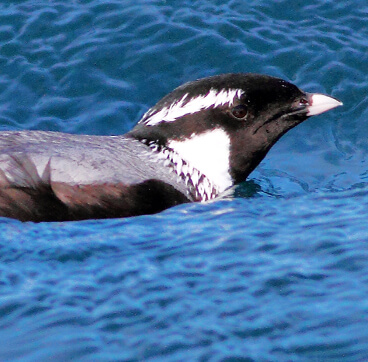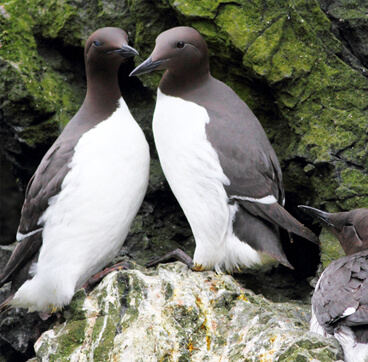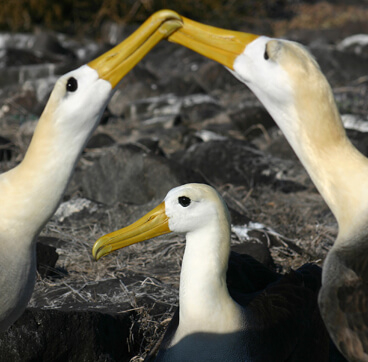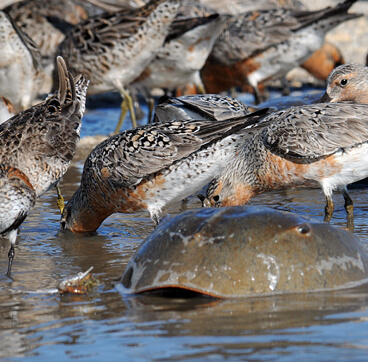People across the globe consume fish. But many bird species — from penguins and puffins to the Pink-footed Shearwater and Laysan Albatross — need fish to survive.
The problem posed by fisheries is two-fold: competition for forage fish is growing as people harvest ever-smaller fish for livestock feed and birds can be caught on baited hooks or tangled in nets. These issues make fisheries one of the biggest threats to seabirds.
We're encouraging new technologies, policy changes, and consumer action to face these challenges.
We are working to reduce the impact of fisheries on seabirds by working directly with fishery managers, helping them find ways to avoid inadvertently catching seabirds in the first place.
We're also encouraging increased consumer demand for sustainably harvested seafood which requires seabird-friendly practices such as minimizing bycatch.

To help fisheries managers find solutions, ABC has created a comprehensive guide “Seabird Bycatch Solutions for Fishery Sustainability” which provides a wealth of information on seabird ecology, protection, and conservation. The 71 page guide with animated features covers how seabirds interact with fisheries, how to reduce bycatch of seabirds, and how to evaluate seabird bycatch for sustainability.
Download two versions: Large file (100 MB) with embedded animations; Small file (25 MB) with the animations linked to YouTube.
(Photo: Greg Homel)

New Mapping Tool
Recently, ABC launched a new interactive web-based tool, Seabird Maps and Information for Fisheries, to enable fisheries and others to assess risk of seabird bycatch in geographic areas of interest under various scenarios, and allow them to make appropriate mitigation or accommodations to avoid accidentally catching seabirds. It can also be useful to anyone with an interest in mapping seabird occurrence by region. See our introductory video here. (Photo: Greg Homel)

To minimize Waved Albatross bycatch in the Ecuadorian hake fishery, we have supported and encouraged the use of simple innovations that reduce exposure of birds to fishing hooks, with support from the David and Lucile Packard Foundation. (Photo: Matt Tilghman) Read more.

Along with many partners, we pushed for restrictions on the harvest of horseshoe crabs in Delaware Bay, which provide a critical source of food to rufa Red Knots on their northbound migration.
Establishment of a crab sanctuary and restrictions on crab collection were among the results supported by the Leo Model Foundation and the Barkley Fund.
(Photo: Gregory Breese/ USFWS)